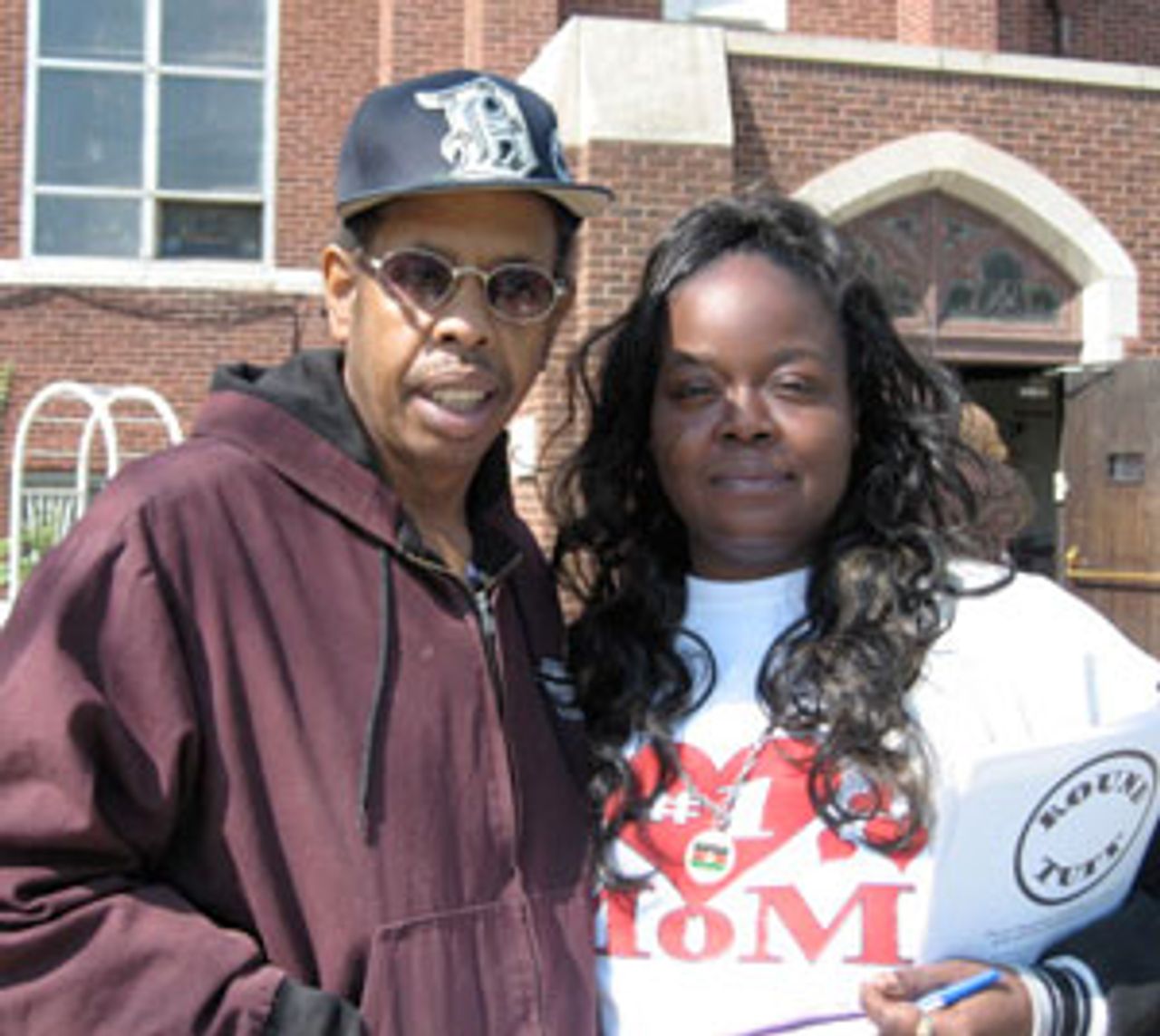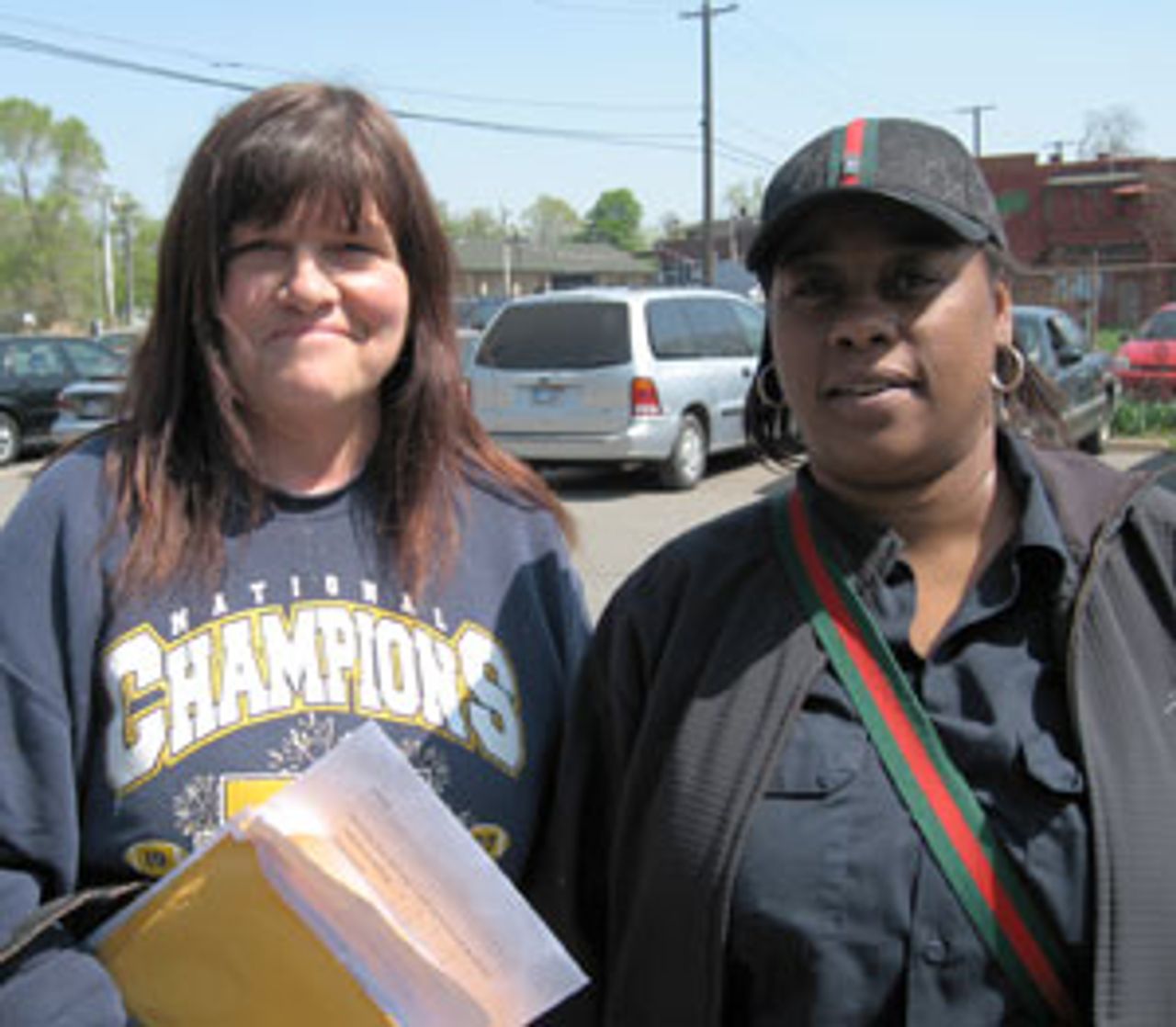In response to the growing popular anger over utility shutoffs and fatal fires that have resulted from them in Detroit, DTE Energy is stepping up its public relations campaign to portray itself as a caring company willing to do everything to help its low-income customers.
In large measure the company is reacting to the strong support received by the Citizens Inquiry into the Dexter Ave. Fire, Utility Shutoffs and the Social Crisis in Detroit, which released its findings earlier this month. The inquiry, which was initiated by the Socialist Equality Party, indicted DTE for the house fires and established a committee to mobilize the Detroit area working class, including utility workers themselves, against further shutoffs.
In the last week DTE took a two-pronged approach, which included a major defense of the company in the local news media and a stage-managed event where officials claimed assistance would be available for customers facing the danger of a gas or electrical cutoff.
DTE employs a large PR staff and spends millions to create an image of a compassionate “corporate citizen.” Meanwhile it shuts off hundreds, if not thousands of households each week. In 2009, the utility shut off service to 221,000 households in southeast Michigan.
On April 16, DTE executives were featured in a front page Detroit News article, which sought to blame the victims of the recent house fires for the tragedies. The article claimed the company was a victim of widespread “energy theft” by city residents, which it claimed was the cause of several recent house fires, including the March 2 fire on Bangor Street where three young children died. (See: “Detroit News runs to the aid of DTE Energy”).
Paraphrasing Steven Kurmas, the president of DTE’s Detroit Edison division, the newspaper wrote, “casting the issue as an insensitive and profit-motivated corporation exploiting desperate people is unfair and simplistic.” The article left out the fact that Kurmas pocketed $2.3 million in total compensation last year and that he was only one of several executives who received rich pay packages at the company, which made $546 million in profits last year.
On April 21 DTE sponsored an event at Trinity St. Mark’s United Church on the city’s southwest side. The unemployment in the area, which once included two major GM plants employing 6,000 workers that were closed in 1987, is officially 22 percent, with the real rate much higher. More than one in three residents in the area live below the official poverty line.
Although it was advertised as a “utility bill payment and service assistance” forum, like other events held recently it provided no specific assistance, let alone bill forgiveness.
 Tenitia Rudolph (right) and her husband Warrington Bryant
Tenitia Rudolph (right) and her husband Warrington BryantTenitia Rudolph and her husband Warrington Bryant attended because they needed immediate help with a $5,000 utility bill and were facing an imminent shutoff. Tenitia explained she was on a payment plan that initially charged her a little over $100 a month. When she was one day late with the bill, her prior forgiven amount was restored and reapplied to the bill. She was then placed on a new monthly payment plan at the rate of $600 a month.
“There is no financial assistance at this event,” stated Tenitia. I came here to see what they could do about the threat I face of a shutoff. I have a bill for over $5,000. How am I going to pay that?”
Warrington asked why there wasn’t more help for working people facing high utility bills.
Pointing to the billions being spent on the wars in Iraq and Afghanistan, he said, “What about the people right here who need help? It seems that we do not matter.
“Who told them that the gas and electricity is theirs? It’s all about the money and the rich. If you have money you count. If you don’t have money, your opinions don’t matter.”
Referring to Obama and other politicians, Warrington concluded, They say they are going to ‘make a change.’ Where? They are all for the big guys.”
“What really pisses me off are the churches,” said Tenitia, referring to many of the black churches with ties to DTE. “They are all a part of it. They are with the corporations. They are all making money together. They say they will help but they don’t. I couldn’t pay the $600 a month, how am I going to pay $5,000?”
 Connie Saez and Shervanda Portis
Connie Saez and Shervanda PortisConnie Saez and Shervanda Portis both said they had experienced utility shutoffs. Connie said she does everything she can to save on her bill including using candles at night instead of lights.
Shervanda displayed her bill, amounting to a whopping $3,764.71. She said she moved into a house in December 2008 and never received a bill until June. “That’s how this bill got so high. Later, while it was cold, they turned off my lights and gas. I went to state Department of Human Services to get help and they eventually turned it back on, but I went for 2-3 weeks without gas or electricity.”
Shervanda, who has three children, was desperate for lights and gas. “Two of my children have seizure disorders and require medication. But when they shut me off they did it without any notice.”
In the Detroit News article DTE officials falsely claimed the company was doing all it could to help customers at risk by referring them to The Heat and Warmth Fund (THAW) and appealing for the government to provide more aid. However, the Citizens Inquiry into the Dexter Ave. Fire confirmed the fact—known by the vast majority of working class residents—that THAW, which quickly runs out of money, is thoroughly inadequate and designed to keep revenue flowing into the coffers of DTE.
Many of the people who came to the church for assistance said they were unable to get any help from THAW and other government agencies for desperately needed help. Connie Saez told the WSWS, “You know before I gave money to THAW. Now when I need help I can’t get any. Why is that?”
The Detroit News concluded with the comments of THAW spokesperson Karen Bitner who admitted, “We still have the summer and fall to get through and we don’t have much money to work with. The problem is just too big. I’m not sure how much money you would have to win this fight. The need here is overwhelming.”
Author also recommends:
Citizens Inquiry into the Dexter Avenue fire: Utility Shutoffs and the social crisis in Detroit
Findings of the Commission
[13 April 2010]
